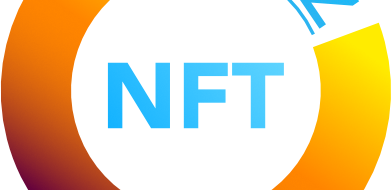Blockchain has several benefits that have sparked interest in the word across a wide range of industries. Blockchain is a secure, transparent, and smart contract-based decentralized ledger system. With many critics, the most well-known cryptocurrency, Bitcoin, which dates back to its first publication in 2009 and has delayed its global acceptance, has achieved considerable momentum with a variety of use cases. These use cases have allowed many sectors such as art, health, technology, and finance to enter the cryptocurrency market. There are few limits to activities within this fast-growing market. Many exchanges exist to buy dogecoin with paybis, Bitcoin, Ethereum, or any other cryptocurrency, but also utility tokens attributed to projects that are not solely focused on profit but also on promoting works and ownerships, such as NFTs (Non-Fungible Tokens).
The accomplishments of blockchain can also be demonstrated through statistics on how much money has been invested in cryptocurrencies such as Bitcoin, Ethereum, Dogecoin, Cardano, and others. The music industry is on the verge of entering a new blockchain-based age that encompasses features like ruling out major influences, transparency and automatic executions, and so on. Many people who use cryptocurrency find out its fluctuations with the help of an author at Crypto Signals Hub. It helps alert them to sell or buy this or that cryptocurrency in time.
The following are ideas for fully comprehending how blockchain technology might help the music industry reach new heights.
Right to Ownership
The inclusion of copyright data in blockchain would allow for the creation of a safe and well-organized database for music copyrights. Many admirers and people on the verge of contacting the owner of a specific piece of music would be able to do so with ease. Most activity related to a specific piece of music that is recorded on blockchain can be seen and tracked by artists whose opportunities are typically limited to distributors, record labels, and other industry professionals. The details of contracts and terms of use of such music defined by the original owner of such pieces are included in music copyrights metadata. Having this available on the blockchain would make it easier to secure a license of usage.
Royalty Payments
In the music sector, royalty payments have sometimes been a stumbling block. Many royalty payments are not made correctly and are frequently delayed. The majority of the value of deals and incomes are usually rendered to artists by the labels with which they signed. This can lead to secrecy when it comes to royalty payments. With its protocols and transparent smart contracts that are programmed to run automatically, blockchain technology would improve this, allowing for speedy and correct payments according to specified contracts between artists and any other party. Artists might be paid for fractions of a cent each time a listener presses play on one of their songs, thanks to the cheap transaction costs of digital currencies on blockchain technology.
No Intermediaries
As an up and coming artist, it can be difficult to get into the spotlight because third parties such as labels and platforms function as mediators between artists and the general public, selecting what music should be heard and how they should be promoted. This would be eliminated by blockchain technology, which would allow for the termination of intermediaries and the identification of artists. This will also improve the quality of music by bringing on board many upcoming artists with real-time talents who have been held back by the aforementioned challenges.
Blockchain indirectly benefits both rising and independent artists by eliminating intermediaries in smart contracts. Opus, for example, makes use of the InterPlanetary File System, or IPFS, a peer-to-peer (P2P) network for file sharing and storage in which users also function as servers. All streaming-related hosting fees are effectively eliminated in this manner.
Artists Funding
Consider a world in which fans can fund artists they like through crowdsourcing. This is a possibility provided by smart contracts. Fans and supporters might earn money as a result of this, which can help musicians advance. Another intriguing aspect that blockchain can bring to the music industry is the ability for interested investors to track the progress of their investments through smart contracts transparency. Furthermore, because the previous history can be accessed without being altered, openness would allow for estimated risks prior to investing. More investors will flock to the music sector as a result of these advantages.









